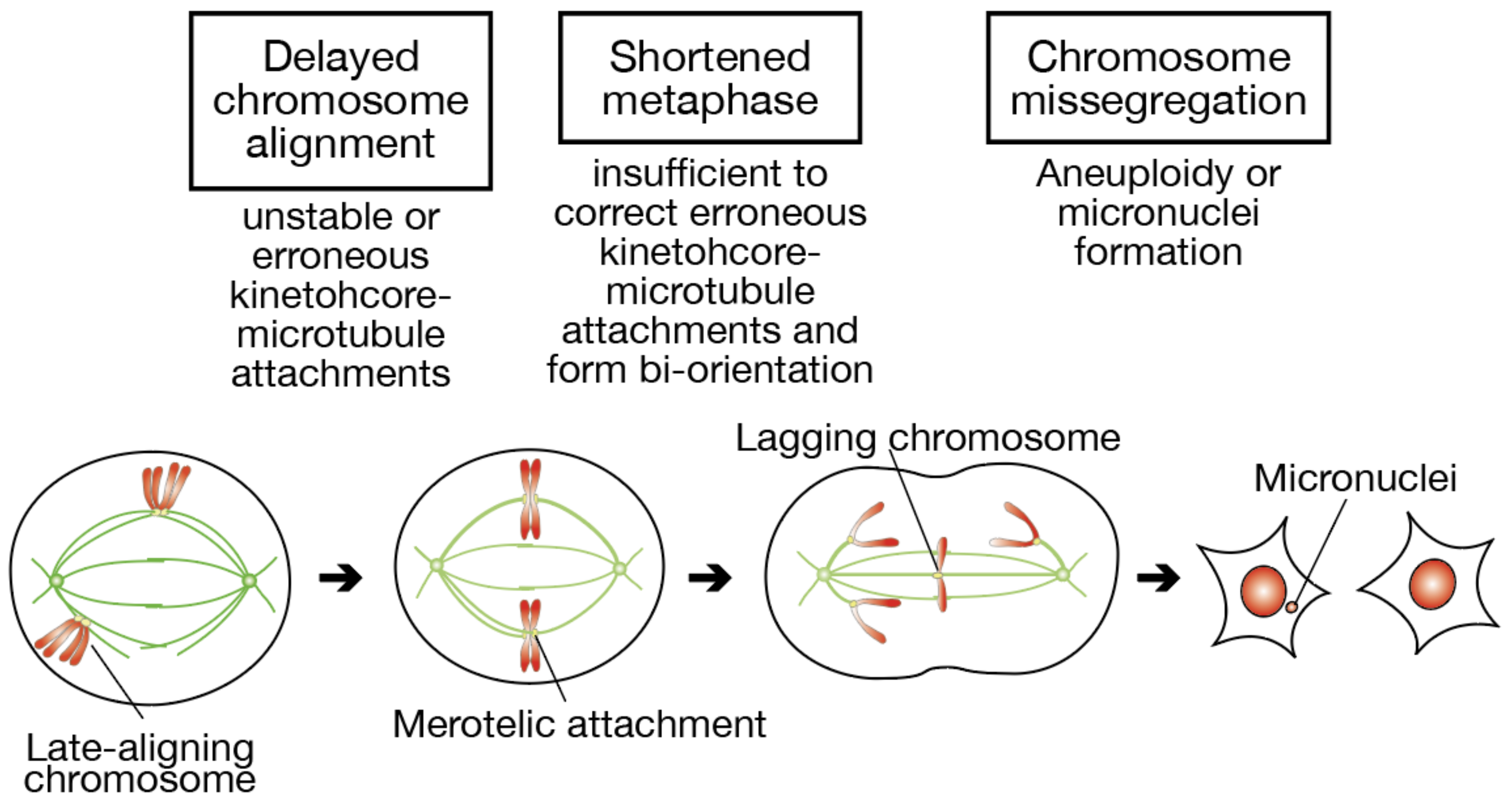Key steps in the execution of chromosome alignment and Biology Diagrams CENP-E depletion disrupts the recruitment of key checkpoint proteins, including BubR1, Bub1, KIF2C, and Aurora B, indicating a causal relationship between chromosome misalignment and spindle assembly checkpoint activation in spermatogonia. Our findings demonstrate that CENP-E regulates kinetochore-m …

Gomes et al. use high-content live-cell imaging combined with RNAi to systematically investigate how human cells respond to chromosome alignment defects of distinct molecular nature. They find that misaligned chromosomes that satisfy the SAC are a strong predictor of micronuclei formation and may account for genomic instability in cancer. Here, we find that the misalignment of chromosomes caused by Spindly depletion is directly provoking spindle misorientation. Chromosome misalignments induced by CLIP‐170 or CENP‐E depletion or by noscapine treatment are similarly accompanied by severe spindle‐positioning defects. Finally, we describe new developments in our understanding of the immediate consequences of chromosome mis-segregation on the genome stability of daughter cells.

Micronuclei from misaligned chromosomes that satisfy the spindle ... Biology Diagrams
We find that MCAK is recruited to centromeres, kinetochores and chromosome arms in mid-meiosis I, and that MCAK depletion, or inhibition using a dominant-negative construct, causes chromosome misalignment. However, the majority of oocytes complete meiosis I and the resulting eggs retain the correct number of chromosomes. Chromosomal instability (CIN), the persistent reshuffling of chromosomes during mitosis, is a hallmark of human cancers that contributes to tumor heterogeneity and has been implicated in driving metastasis and altering responses to therapy. Though multiple mechanisms can produce CIN, lagging chromosomes generated from abnormal merotelic attachments are the major cause of CIN in a variety of

Here, we reveal that CENP-E haploinsufficiency results in chromosome misalignment, spindle disorganization, and metaphase arrest in spermatogonia, which leads to the loss of spermatogonia, chromosomal instability, and spermatogenic disorders. Here, we addressed whether delayed chromosome alignment to the spindle equator increases the rate of chromosome missegregation. Cancer cell lines depleted of Kid, a chromokinesin involved in chromosome congression, showed chromosome alignment with a slight delay, and increased frequency of lagging chromosomes.
